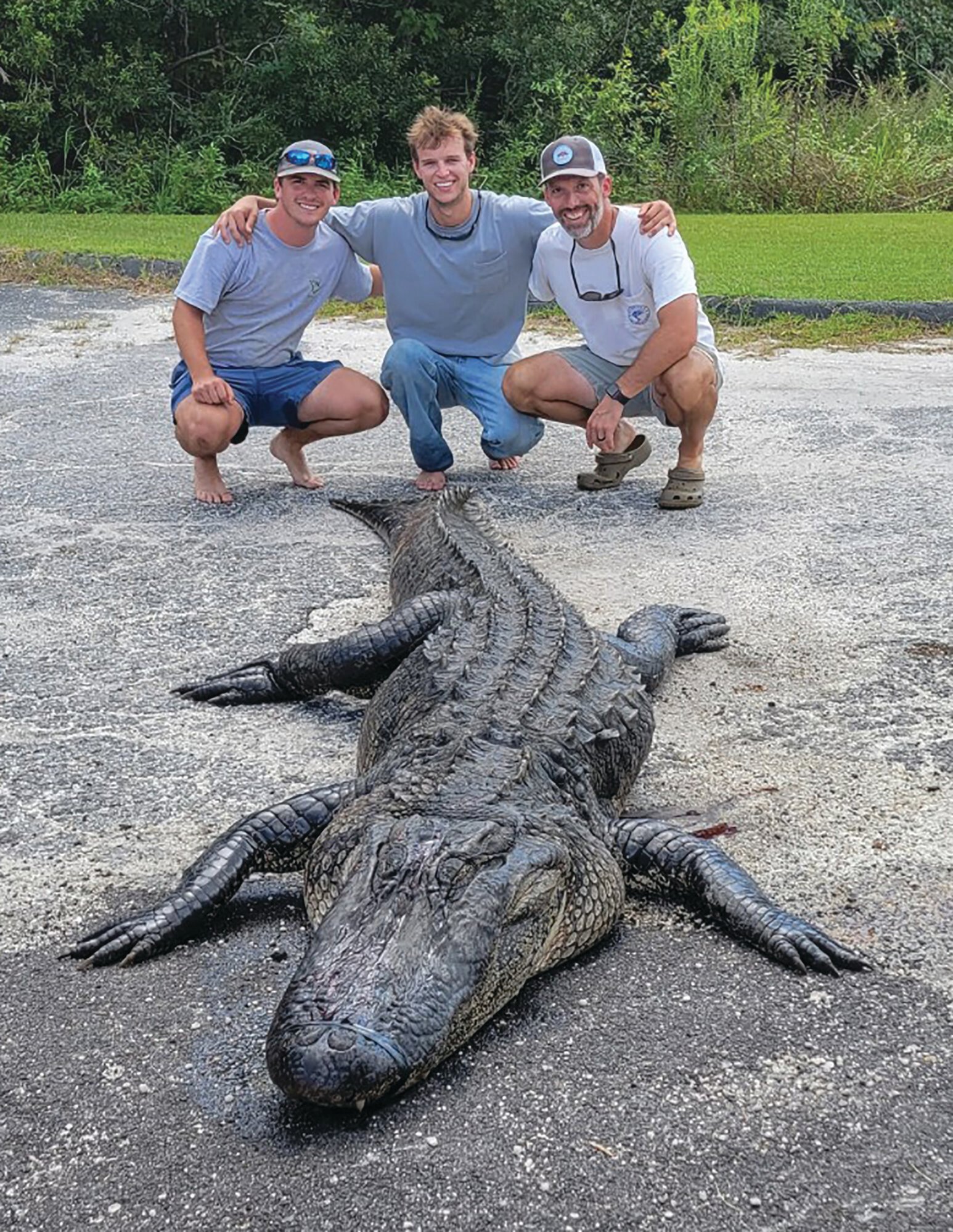Lake Marion named No. 1 in S.C. alligator population
Clarendon contributor
SANTEE COOPER LAKES - Lake Marion is not only the largest lake in South Carolina covering more than 110,000 acres, but it's also known by anglers nationwide as a mecca for big bass, catfish and a variety of smaller fish. Lake Marion has received another designation. AZ Animals has listed the popular recreational lake as having the highest confirmed American Alligator population in the state.
Lake Moultrie, Lake Marion's smaller sister lake that covers more than 60,000 acres and comes in as the third-largest lake in South Carolina, was ranked by AZ Animals as No. 2 in the state for the number of alligators residing within its banks.
According to the South Carolina Department of Natural Resources, there are more than 100,000 alligators calling the state's lakes and waterways home with Lake Marion home to an estimated 100 of those alligators.
Rounding out the top four state areas with lakes in terms of the number of alligators living there are Hilton Head Island at No. 3, and Charleston at No. 4.
Alligators in the state's lakes are most often found thriving in the shallows and swampy areas of the lakes as well as in the lakes' coves and creeks. Between 2016 and 2018, a 700-pound gator and an almost 1,000-pound gator were caught, ranging from 12 to 15 feet, according to AZ Animals. In 2022, Stephen Glenn, Anders Land and Alex Brammer wrangled a 500-pound, 12-foot alligator in the Taw Caw area of Lake Marion, according to The Item archives.
Lake Marion, a freshwater lake, provides a habitat that is comfortable for gators with a climate that never gets cold enough to freeze the lake. It is connected to Sparkleberry Swamp, a popular fishing spot, and home to a significant number of the lake's alligator population.
Lake Marion's shores span five counties, including Clarendon, Sumter, Orangeburg, Calhoun and Berkeley, with sightings of alligators in each of the counties.
Lake Marion is now in the middle of the breeding season for alligators. It's common for single female gators to lay a clutch of 30 to 50 eggs, and this means that the population of alligators within Lake Marion and other state lakes will continue to grow. Lake Marion's abundance of fish also provides the lake's gators with plenty of food to keep them well-fed all year.
In the wild, American Alligators can live between 30 and 50 years with adult male gators reaching lengths of 15 feet.
Travel Safe - Abroad lists three safety tips for swimming in areas where alligators have been sighted:
- Don't swim between dusk and dawn because alligators are more active at night, and splashing can mimic prey;
- Take friends when you swim. With a lot of activity in the water, gators are more likely to keep their distance. Having friends along also ensures that if there is an incident, someone is available to call for help.
- Don't feed the alligators. It is illegal in South Carolina to feed alligators. Feeding alligators can teach the reptiles that it is safe to approach humans for food. Alligators that frequently are fed by humans may get aggressive when the humans don't feed them.
It's also important to notify SCDNR when alligators are seen in areas where they shouldn't be or if you see people feeding them. To report issues with alligators, call SCDNR at 1-800-922-5431.
One area of Lake Marion where you can see alligators from the comfort of your vehicle is the Santee National Wildlife Refuge's Cuddo Unit off Log Jam Road near the John C. Land III Fishing Facility. The Cuddo Unit's 7.5-mile Wildlife Drive features several stops along the route to view an abundance of South Carolina's wildlife, including Cuddo's popular Alligator Alley. Cuddo's visitors can frequently spot gators sunning or swimming. Visitors are asked to never feed the wild animals, including gators.
Applications for S.C. Alligator Lottery now being accepted
The South Carolina Department of Natural Resources' Alligator Lottery is now underway and lasts until 5 p.m. July 15.
A $10 nonrefundable application fee is required to apply. A randomized computer drawing based on a preference point system will determine the selection of hunters.
The 2023 public alligator season will begin at noon Sept. 9 and end at noon Oct. 14. If your entry is chosen, the tag fees are $100. Additional fees apply to nonresident hunters. Applicants will be notified by email of their selection status after the drawing has been completed. Applicants can also check their status online any time after the drawing. By law, the fees that are collected through the lottery are used to support the Alligator Management Program's research and management activities and for conservation of the American Alligator in South Carolina.
To apply for the alligator hunts, for more information on the lottery and for information on any changes and updates to the program, check the SCDNR website at https://bit.ly/3oKGltm.
For questions or assistance with applying, contact Emily Kearse at (803) 734-3887 or kearsee@dnr.sc.gov or contact Trista Bishop at (803) 734-3892 or bishopt@dnr.sc.gov.
More Articles to Read

